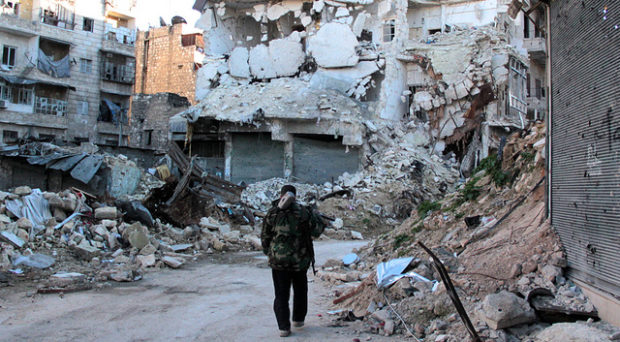
Resource allocation is an enduring medical problem. From the triage of penicillin in World War Two, to contemporary discussions about organ availability or the use of medical countermeasures following a bioterror attack, cases abound in which scarce resources need to be allocated to a population along ethical, principled lines.
There’s a gap in this story, however. Most cases of allocation that scholars and policymakers address are either:
- The allocation of scarce resources to the military during wartime; or
- The allocation of scarce resources to civilians during peacetime, or (in the case of terrorist attacks in developed nations) outside of a warzone.
What we hear very little about, however, are the difficulties allocating resources to civilians during wartime, within a theater of armed conflict.
This is the problem my colleague, Mohamed Sekkarie, and I set out to address, using the case of dialysis resources in the Syrian conflict.
General principles, specific changes
Allocation principles follow relatively standard rationales. We can prioritize the welfare of a population; guarantee a fair and impartial process through a lottery; help the worst off or chose patients most likely to survive; or favor essential personnel to support the community in a crisis.
In disaster scenarios we often think of both the last, and the first: social usefulness, for example treating healthcare workers first; and utility, in terms of saving the most lives. We may also prioritize young people and children over the elderly, to save the most life-years as an alternative to saving the most lives.
War is a disaster: a protracted, longstanding, humanitarian disaster. Supplies once plentiful quickly dwindle; replacements may be delayed, captured, or destroyed. Allocation in wartime is thus the worst of all worlds: scarce resources, in that we don’t have enough to go around, but also insecure resources we have no guarantee or expectation of replenishing.
Even when resources are on hand, getting access to care is dangerous for those living day to day in fear of war. All travel carries risk, even if it is only the risk of driving to and from an appointment. But civilians in a warzone must contend with bombings in the street, firefights, or deliberate attacks on healthcare facilities. These represent a degree of risk potentially high enough that they may outweigh the expected benefit of frequent clinical care.
Syria
We chose Syria, a country decimated by war for seven years, because the long-term effects of the conflict on the civilian population of Syria are frequently neglected. We know the war has claimed approximately 400,000 lives, but UN observers and non-governmental organizations struggle to approximate the toll the war has had on people through neglect brought about by food and medical shortages. We do know, however, that critical medical resources are in short supply, and that doctors and clinics alike have been targeted during the war.
Dialysis
It may be less obvious why we would choose dialysis as a case study. An underappreciated effect of the Syrian conflict has been the collapse of support for individuals receiving long-term clinical care, including patients with end stage renal disease (ESRD). Treatment for ESRD is costly, complex, and can quickly kill a patient if interrupted. It is an understudied problem in the context of armed conflict. Dialysis centers in areas such as Aleppo, Homs, and Idlib have been destroyed, looted, or occupied by armed groups, motivating our concern for allocating dialysis supplies.
The allocation of dialysis units is also an important part of the history of bioethics. In 1960s Seattle, the first dialysis units were overseen by the so-called “God Squad,” charged with making decisions about who would receive care. In the US, dialysis is common enough that we rarely hear about it as an allocation problem, but it remains an urgent and scarce therapy in other parts of the world.
By focusing on ESRD and dialysis, we hope to highlight the urgency of providing care to the people of Syria, and the resolution of the conflict. This medical resource has been an essential part of healthcare for millions of Americans for half a century; its scarcity in Syria illustrates the dire situation on the ground.
The solution to these shortages, of course, is not rationing: it is peace.
Unlike hearts or lungs, which would arguably remain scarce even if we had greater participation in organ donation programs, nothing but politics makes dialysis a scarce medical resource in Syria. This means that as long as our governments continue to politicize the conflict, exacerbate it, or further it, they remain complicit in the suffering of the Syrian people.
Medical professionals should lobby their governments to provide more aid, maintain humanitarian corridors, and ultimately end the conflict in Syria. Our principles are for caregivers to use in the meantime, while this larger task remains unsolved.
Comments